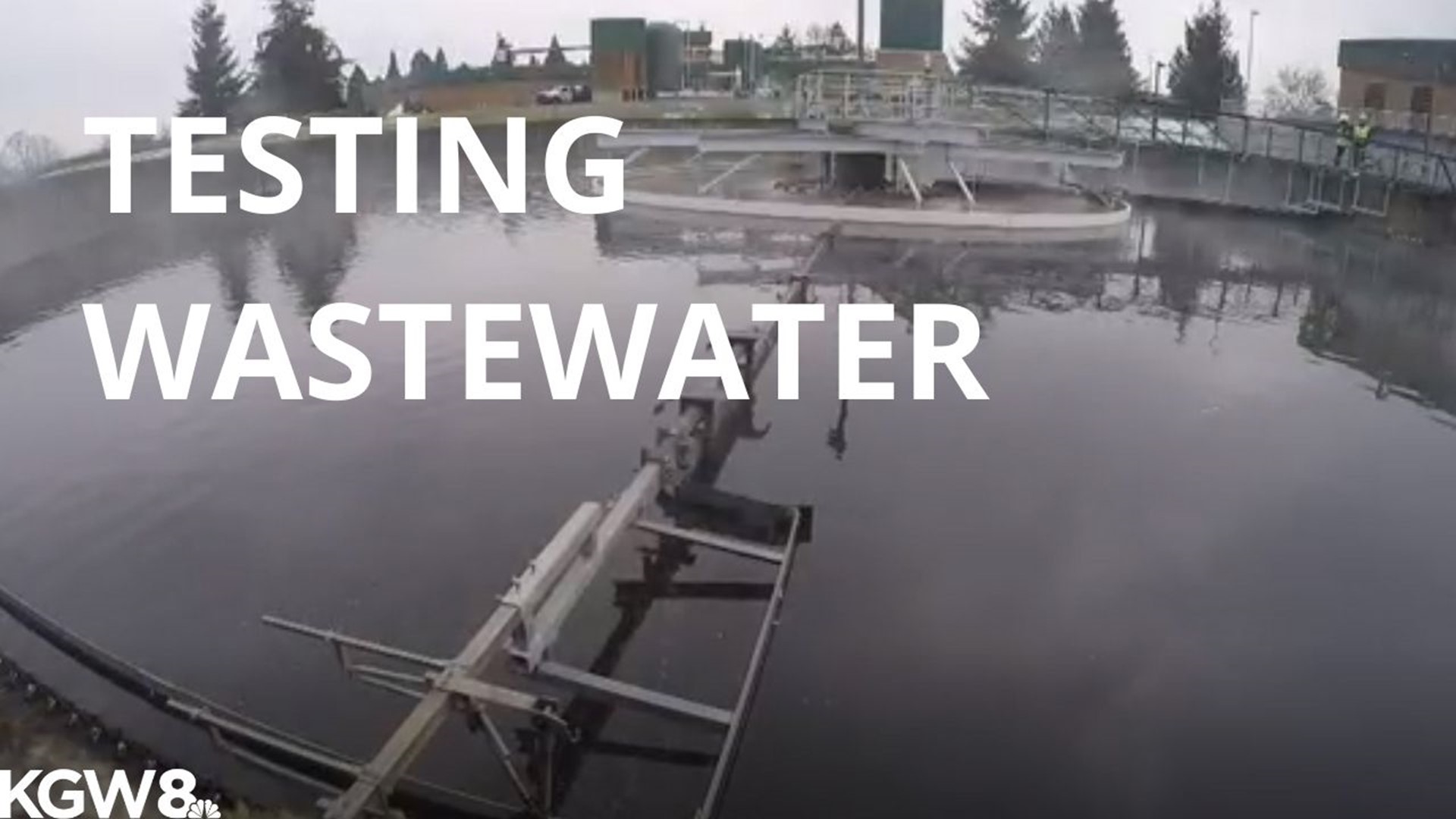VANCOUVER, Wash. — It's a COVID-19 connection many of us would never have thought of. Before it's treated, wastewater can be carrying what's believed to be an inactive form of the coronavirus. How much is shed into the water by feces, can be an indication of the level of infection in a community.
"There's some pretty well-known science where we can measure the copies of RNA associated with that virus and so we can determine how many copies of RNA are present in the wastewater," said Elliott Wheeler, who works for Jacobs, the company that operates and maintains Vancouver's wastewater system.
The company is working with the city to pull samples, that are being sent to Arizona State University to be tested. Jacobs is doing the same thing with dozens of other systems it operates across the country. Other groups of waste water managers and universities are performing similar work to develop this emerging science.
"As we pool all this data together that everyone is gathering, the hope is, again, that we can get a better model for predicting cases," said Wheeler.
City of Vancouver wastewater engineering supervisor Frank Dick explains that drawing samples is nothing new for wastewater systems. They test for all sorts of regulatory reasons.
"We have samplers on the influent or the front-end sections of our wastewater treatment plants," said Dick.
This reason for sampling is important for scientists trying to figure out how to measure the deadly disease.
"It’s another data point for them that hopefully they can find of use in their work, so it feels good to be a part of that," said Dick.
Vancouver's system serves nearly a quarter-million people. Health officials here will get results from the ongoing testing. It will be one way to measure the ebbs and flows of the virus.
"So that perhaps if an outbreak subsides as people are predicting should happen, but then we’re concerned it could come back in the fall. So, then we can monitor this again as another piece of data public health officials can use to inform their actions related to COVID-19," said Wheeler.
RELATED: Tanker truck loads of beer go to Portland wastewater treatment facility amid coronavirus pandemic

